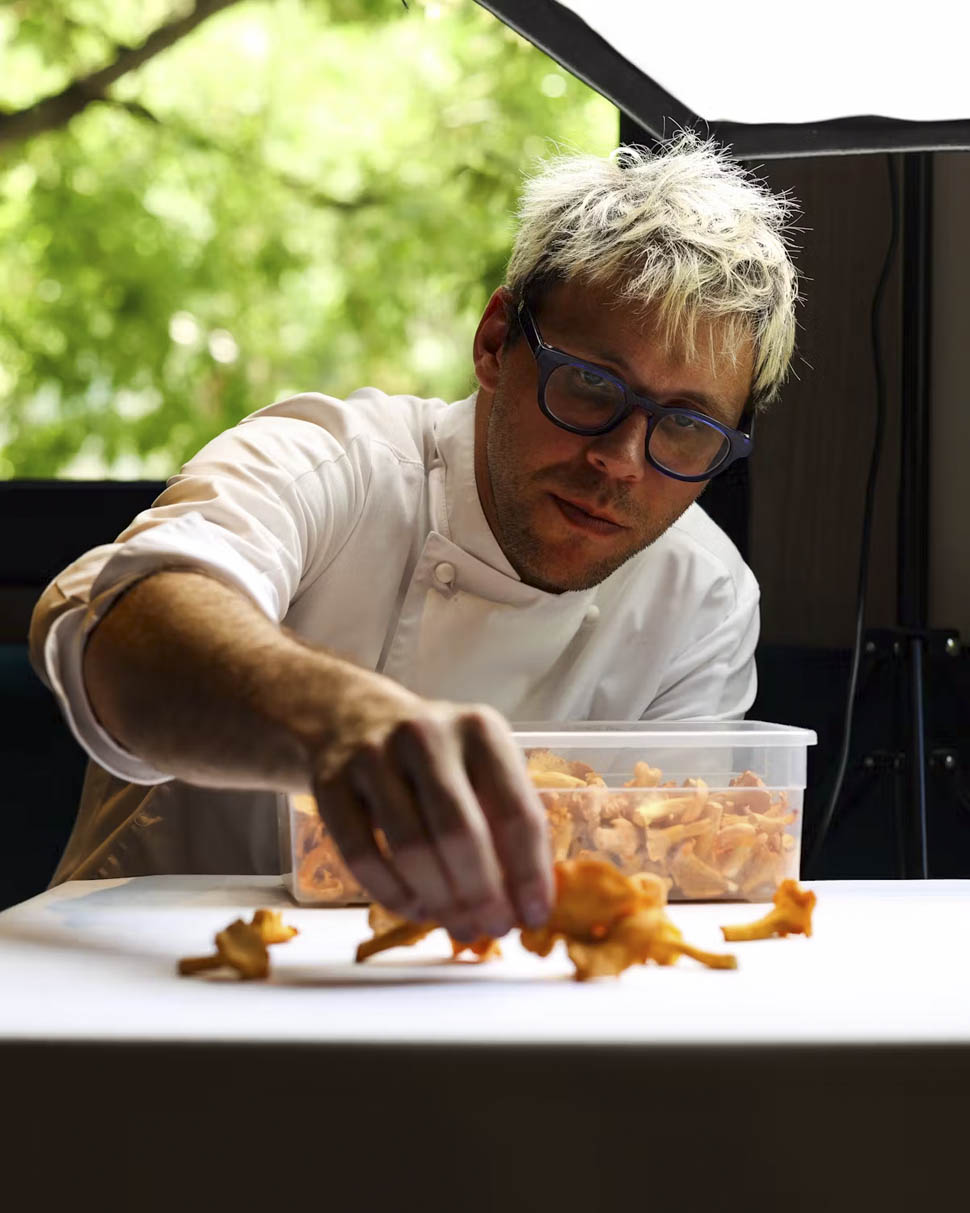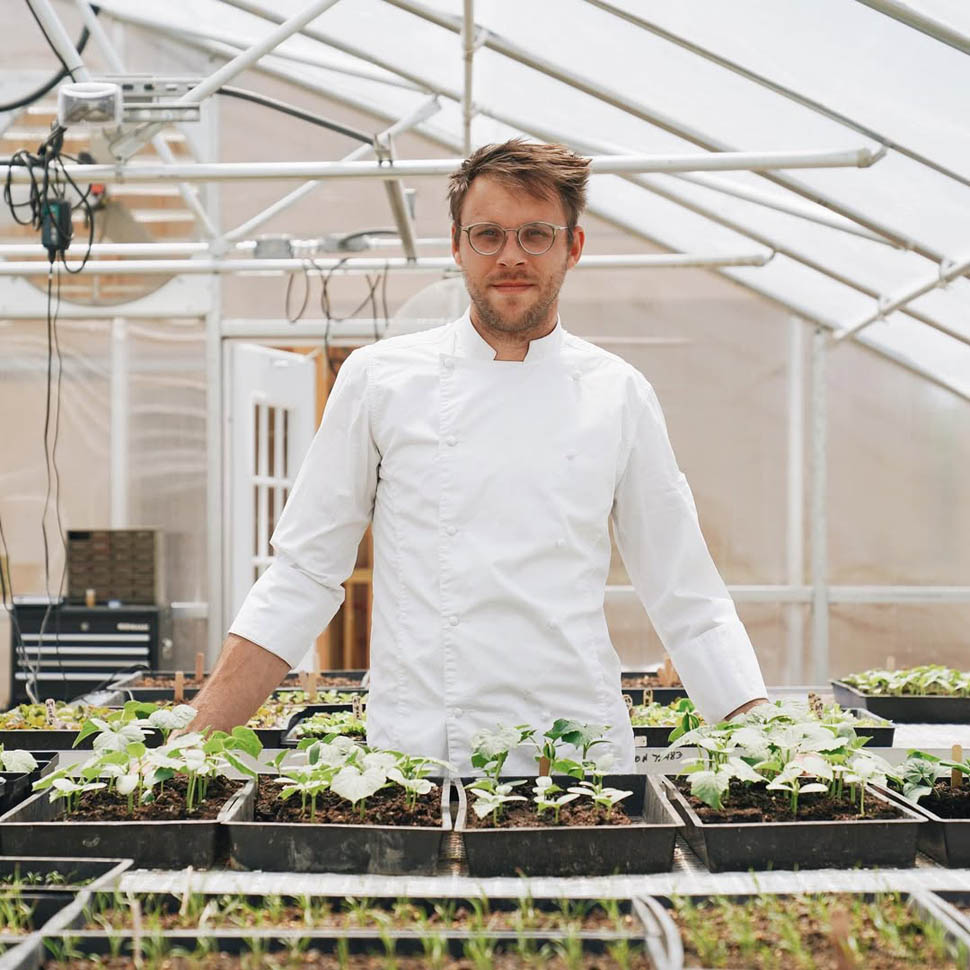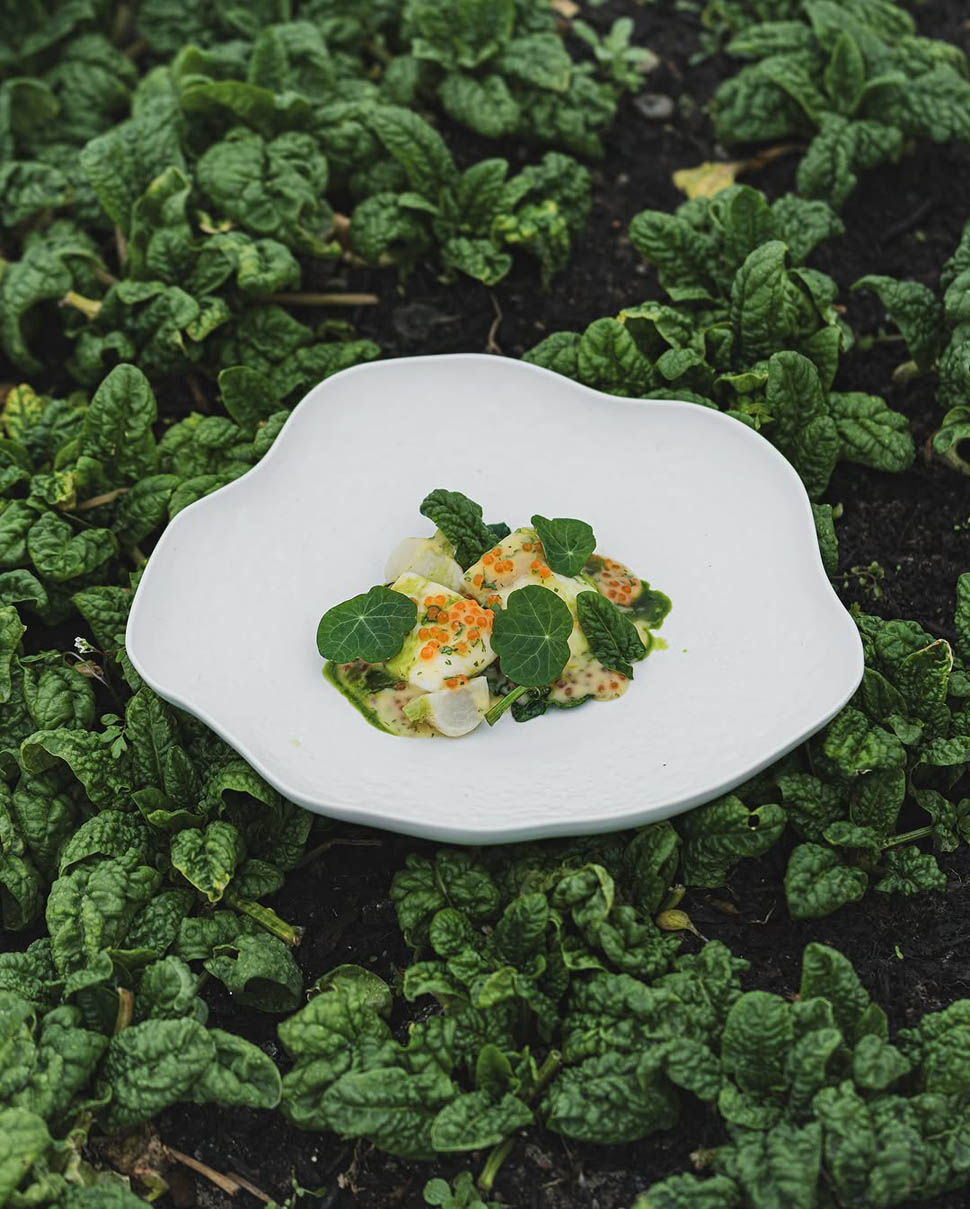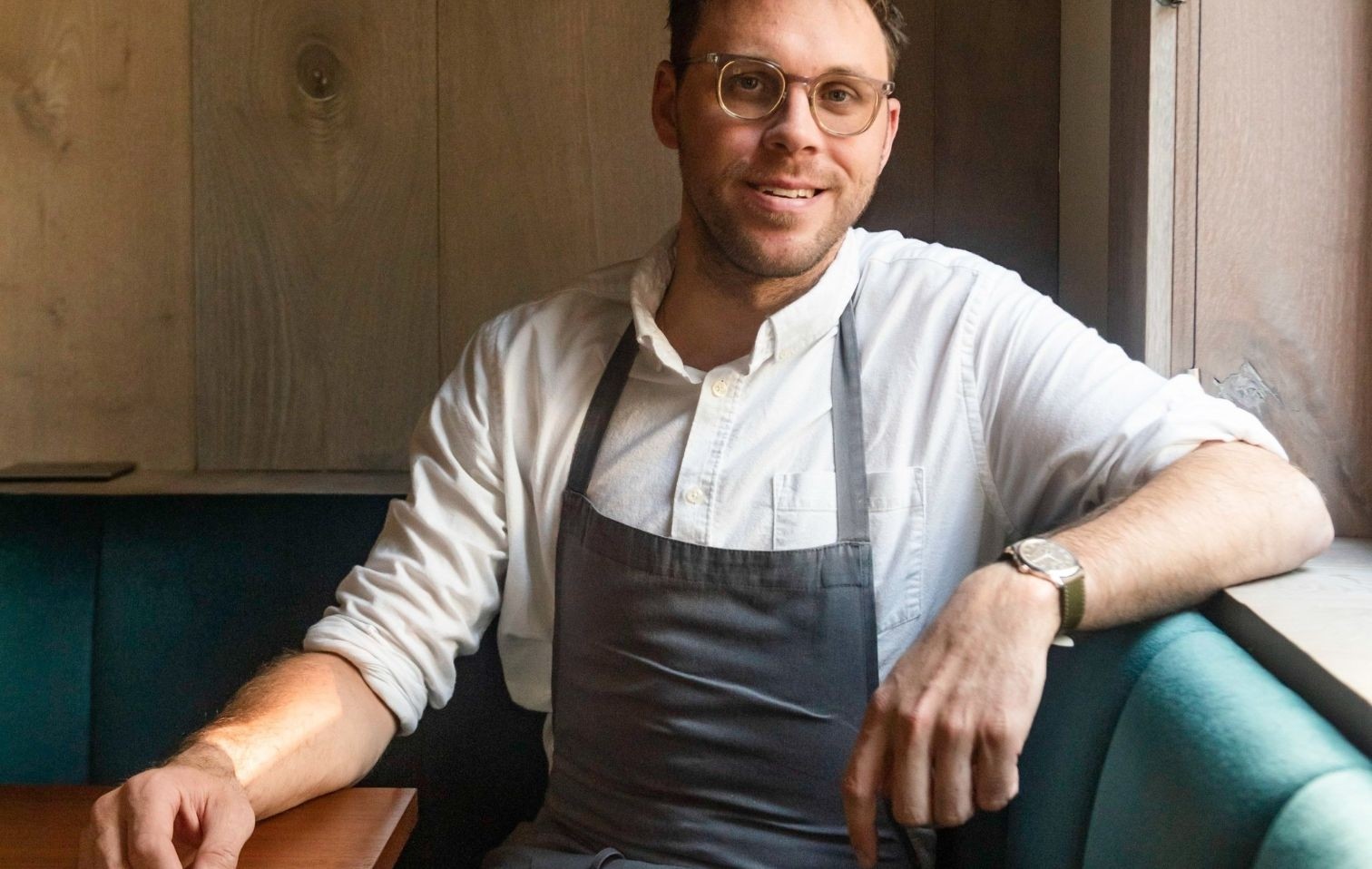At No. 1 White Street the ethical world of Austin Johnson: not just food, but also the relevance of the human factor. "Everyone who does the work needs to feel protected-this is the most important aspect of making sustainability truly sustainable. Take care of the staff."
The restaurant and philosophy
If Nutopia is the “conceptual country” created by John Lennon and Yoko Ono-aland without borders or passports, where the laws are only cosmic ones and all citizens are considered ambassadors of the nation-chef Austin Johnson's world is a place where the rules are those of Mother Nature and every single citizen is a champion of the Earth and responsible for its protection. With different precepts but a similar goal, namely, the preservation of the planet and those who inhabit it, both the world desired by the former Beatle and Yoko Ono and Johnson's find their outpost at 1 White Street in New York. In the Tribeca neighborhood, in a fully renovated 19th-century townhouse since 2021, Johnson - born in Omaha, Nebraska, whose resume boasts restaurants such as Seattle's Canlis, New York's Eleven Madison Park and Frenchie in Paris, to name a few - expresses his talent through food and his love of the ingredients by which he is inspired.

On the three floors of One White Street, already awarded a Michelin star, the concept of sustainability finds substance and is stripped of all frills and fashion trends. "Sustainability is our identity. We want to offer our customers not only delicious cuisine, but also a better future for our planet: less waste in the oceans and landfills. Just as important as the restaurant menu is how it is made. How do our farmers, fishermen, harvesters, and producers prioritize sustainability? What is our impact on the farm-to-table philosophy? What container is best for us and the environment at the same time? For us, each individual element really begins to make sense when we consider the sustainability relationships between One White Street, Rigor Hill Market, and Rigor Hill Farm. The three entities work together to create a significantly more sustainable restaurant-farm partnership. I think the restaurant and farm community already understands how important that is. I think the idea of sustainability is no longer a question of why and when, but rather a question of now and how,", tells Johnson in an interview with Michelin Guide.

As the chef's words make clear, One White Street's sustainability involves not only those involved orbiting the restaurant, but also Rigor Hill Farm, the Columbia County farm in upstate Columbia that supplies produce to the restaurant year-round, and Rigor Hill Market, the take-out bar next to the starred restaurant, which sells breads, pastries, sandwiches, salads and soups, a wide selection of fruits, vegetables, herbs, microgreens and flowers from the farm, and the entire community. "From the earliest days when we even merely thought about the restaurant we were moving in the direction of sustainability... then when we opened Rigor Hill Market, all of a sudden we found ourselves having a café and market that prepared breakfasts, lunches, dinners, take-out food, bakery and pastries seven days a week. That's when we became more serious about our packaging. On the food side, we also started collecting all the restaurant waste and turning it into delicious soups, salads and ice cream for the Market. Running two businesses at the same time was the point at which sustainability became a real top priority. Sustainable practices require more effort, more care and authenticity, so the identity has to be there.". For the chef and patron of One White Street , however, true sustainability consists not only of managing the kitchen, packaging, and logistical logistics, but also, and more importantly, the approach to people, daily life, and interpersonal relationships.

"Culture is key. Everyone who is employed in our activities must have passion and care for each team member; this, honestly, is the most important element in making “sustainability sustainable ”: taking care of the people who are at your side. Sustainability must be a practice and not just the end result. This requires continuous improvement. There is not just one thing to start or stop doing, and that's it; it is a real modus operandi. Local sourcing is, then, crucial: not only does it ideally keep the menu hyper-seasonal, but it also reflects the local culinary traditions and historical agriculture of the region and allows the menu to describe and celebrate the region. As a result, the menu and food become more sustainable because they travel less. Less fuel is needed and there is less packaging to get from the field to the kitchen. We desire and will continue to strive for this. As far as we are concerned, we want to focus on our practices and our promises to Mother Nature. We want to set standards and become ambassadors for this industry and a more sustainable approach for the future. We need to reevaluate our standards as a society and accept more “ugly” fruits and vegetables in our supermarkets and restaurants. We need to be present at farmers' markets, universities and children's education centers to help spread the word about what is important for our food systems of tomorrow. We need to start educating and raising awareness about what a cleaner, healthier planet wants to be."

Thus the protection of the Earth and society translates, yes, into a menu based on micro-seasons, but also into a concrete commitment to social support and to spreading a respectful approach to the world and to each other, where the watchwords are: collaboration, support and synergy. "We are proud that our farm can feed more than just the regular customers of our restaurant, but also our farmers, our employees and those in need. I am proud, then, to serve on the Board of Directors of City Harvest, a food recovery organization that collects top-quality fruits and vegetables and donates them to hungry and needy New Yorkers. In our own small way, then, everyone can learn to cook with more vegetables and produce from the local farmer's market, try to reduce our daily environmental impact and, most importantly, share the enthusiasm."











